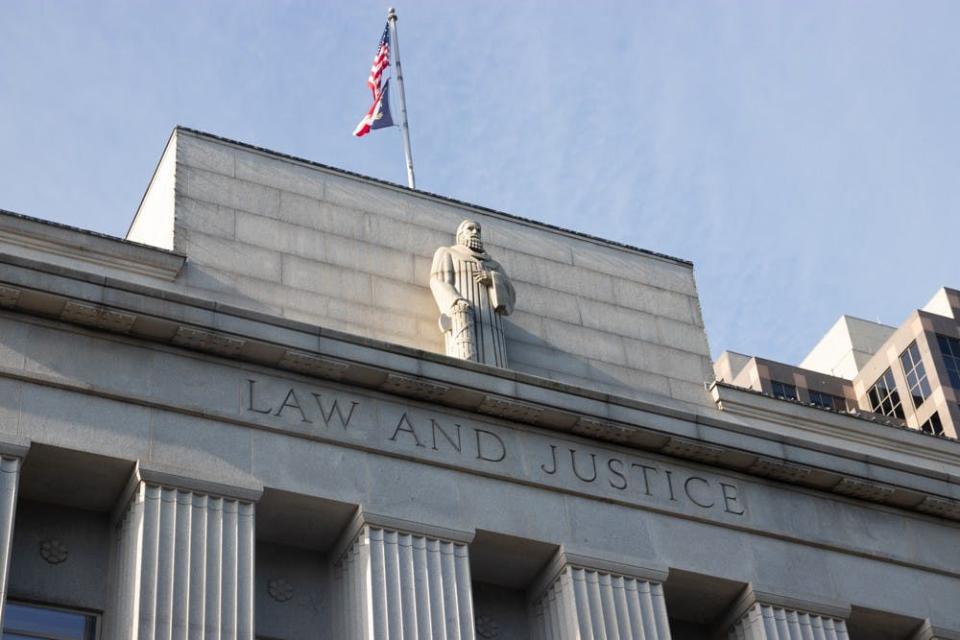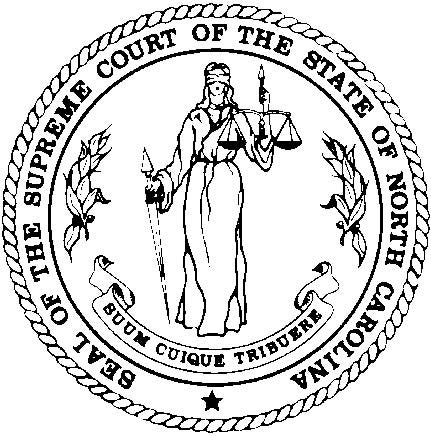Attorney General Stein: Child sex abusers are not constitutionally protected from lawsuits
- Oops!Something went wrong.Please try again later.
ASHEVILLE - Arguing that the North Carolina Constitution does not protect those who sexually abuse children from being sued, the Attorney General’s Office and lawyers for the plaintiffs in a N.C. Supreme Court case that will weigh the constitutionality of the N.C. SAFE Child Act filed briefs July 11 in the landmark case.
The briefs move forward the case in which a ruling could impact scores of lawsuits claiming sexual abuse of children filed against individuals and institutions, including Asheville School, Daniel Boone Council of the Boy Scouts and many other schools, churches and camps.
“The bottom line on our argument is that we strongly believe that freedom from responsibility for child molesting is not one of the fundamental rights protected by our state constitution,” Don Higley, an attorney with the Lanier Group, based in Asheville, representing plaintiffs who were sexually abused by their Gastonia wrestling coach, told the Citizen Times July 12.

In the 167-page brief filed with the N.C. Supreme Court, Higley and co-counsel Robert Jenkins and Lisa Lanier, argued for a reversal of a Dec. 20, 2021 ruling by a three-judge Wake County panel that found the SAFE Child Act unconstitutional, specifically the “revival provision” or “lookback window” allowing victims of child sexual abuse, who were otherwise time-barred, a two-year window to sue their abusers.
NC Supreme Court: Child sexual assault lawsuit under SAFE Child Act will move forward
Read this: Deadline nears for child sexual assault survivors in North Carolina to sue their abusers
The SAFE (Sexual Assault Fast reporting and Enforcement) Child Act was passed unanimously by the state legislature in 2019. In addition to the lookback clause, which was open Jan. 1, 2020, to Dec. 31, 2021, it increased the statute of limitations for a victim to sue a child abuser from age 21 to 28.
Attorney General Josh Stein is also a party to the suit, or an “intervenor appellant,” and filed a 66-page brief with the Supreme Court defending the SAFE Child Act.
“When my office drafted the SAFE Child Act and the General Assembly unanimously passed it in 2019, we did so with a better understanding of how childhood abuse affects children,” Attorney General Josh Stein said in a news statement July 12.
“We now know that it takes people years to process traumatic childhood events, and the SAFE Child Act gives people who were abused as children the ability to hold accountable their abusers. Every victim deserves their day in court.”
The Citizen Times reached out to the chair and vice-chair of the Gaston school board as well as their Greensboro law firm, Brooks, Pierce, McLendon, Humphrey & Leonard, but did not receive a response July 12

Wrestling coach sexually abused young students
The case arrived at the Supreme Court after snaking through the legal system.
On Aug. 12, 2014, Gary “Scott” Goins, former East Gaston High School wrestling coach, was found guilty of 17 counts of sexual offenses against children, including statutory rape. Goins appealed his convictions but lost his appeal on Dec. 16, 2015.
Goins repeatedly sexually assaulted three students when they were adolescent wrestlers at the high school in Gaston County, about an hour-and-a-half southeast of Asheville. “Goins used his position of authority over them and access to them to commit his repeated sexual assaults and that Defendant Gaston County Board of Education was negligent in allowing this to happen,” according to the plaintiff’s brief.
They sued Goins and the school board in November 2020 under the newly passed SAFE Child Act. The school board claimed the law was unconstitutional and made a motion to dismiss.
On Dec. 20, 2021, a three-judge panel, in a 2-1 decision, ruled in favor of the defendants. On Dec. 28, Higley filed an appeal on behalf of the former students. In March, they dismissed Goins from the lawsuit.
On July 5, the Supreme Court issued an order allowing the case to bypass the Court of Appeals and go directly to the Supreme Court.
Related: Gaston County Schools challenges sex abuse lawsuit, NC SAFE Child Act
More: 5th sexual abuse lawsuit filed against Asheville School; former teacher says he's innocent
Asheville School, an elite, private boarding high school in West Asheville, also used the defense that the SAFE Child Act is unconstitutional when hit with four lawsuits in 2020 and 2021 by five former students claiming they were sexually abused by Asheville School faculty.
Those cases could hinge on the rulings in the Gaston County case, lawyers say.
At least one child victim of sexual assault has been successful so far in suing under the SAFE Child Act. Rachel Howald, a graduate of Ben Lippen School, a private, Christian boarding school formerly located in Asheville, settled her lawsuit in June with the school claiming they had allowed a teacher and coach, Pamela Kaye Herrington, to sexually abuse Howald for years in the 1980s.
Howald’s case against Herrington is ongoing.

Arguments against the three-judge ruling
“Text, history, and precedent all show that the General Assembly has the authority to revive civil tort claims otherwise barred by a statute of limitations,” the attorney general’s brief states in arguing the three-judge panel’s ruling should be reversed, and that revival provisions, such as those in the SAFE Child Act, are indeed constitutional.
“The North Carolina Constitution’s text does not expressly or impliedly prohibit the General Assembly from doing so. History provides further support. Contemporaneous cases interpreting both the original 1776 Constitution and the 1868 Constitution make clear that, at the times those constitutions were enacted, it was understood that the General Assembly has the authority to revive time-barred civil claims. … statutes of limitations do not confer a constitutional right to be free of tort liability once a limitations period expires.”
Previously: Former WNC Boy Scouts allege child sexual abuse against Daniel Boone Council
More: Child sexual abuse lawsuit under NC SAFE Child Act settled against former Asheville school
Stein’s brief also argues that the panel erred in its December decision because it incorrectly read a 1933 case, Wilkes County v. Forester. That case held that the General Assembly could not revive expired civil claims when they would divest owners of their property.
“By contrast, Wilkes acknowledges no similar right of a defendant to avoid tort liability after a limitations period runs—especially liability for child sexual abuse,” Stein’s brief says.
The revival provision “provides some measure of justice to victims of abuse, it helps identify perpetrators and their enablers, and it shifts the tremendous costs of abuse away from victims and their communities.”
Since the state of North Carolina has intervened and is a party in the Gaston case, “the State stands side by side with our clients in seeking to have the SAFE Child Act validated as a legitimate effort by our unanimous legislature to protect victims of child sexual assault,” Higley told the Citizen Times.
“Attorney General Josh Stein was instrumental in the creation of the SAFE Child Act and is literally on our side.”
Higley said the next step in the appeal is for the defense to file their briefs, after which will be oral argument.
“The timing of the supreme court’s decision is unpredictable,” he said, adding he doesn’t expect it will be this year.
Karen Chávez is Content Coach/Investigations Editor for the Asheville Citizen Times, part of the USA TODAY Network. Tips? Call 828-712-6316, email, KChavez@CitizenTimes.com or follow on Twitter @KarenChavezACT.
This article originally appeared on Asheville Citizen Times: NC Attorney General says child sex abusers not protected from lawsuits

